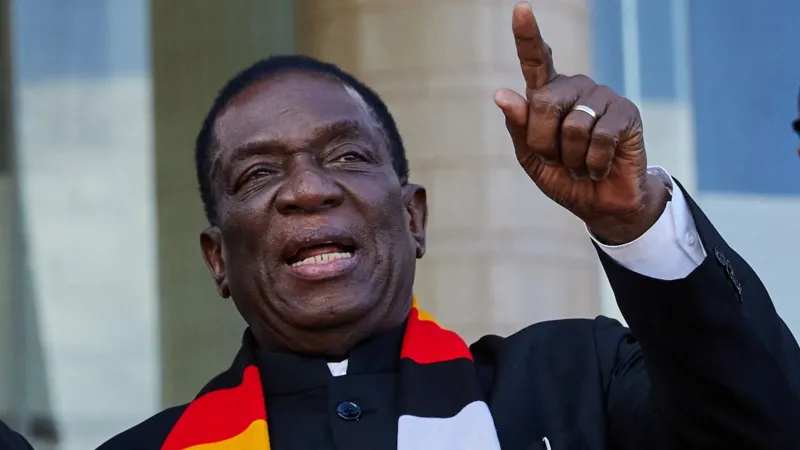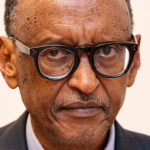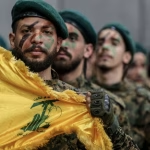In the ever-evolving political landscape of Zimbabwe, President Emmerson Mnangagwa’s recent decision to appoint a new army chief has raised eyebrows and sparked discussions ahead of anticipated protests. As the nation grapples with economic woes and rising discontent, this military reshuffle may play a pivotal role in the government’s response to dissenting voices.
On October 12, 2023, Mnangagwa announced the appointment of General David Sigauke as the new commander of the Zimbabwe Defence Forces (ZDF). Sigauke, who previously led the Zimbabwe National Army, is widely recognized for his long-standing ties to the ruling Zimbabwe African National Union-Patriotic Front (ZANU-PF) party and his loyalty to Mnangagwa. This appointment is viewed not only as a nod to continuity but also as a strategic move to bolster the military’s control during a critical phase for the government.
The context surrounding this appointment is significant. Zimbabwe is currently facing mounting socio-economic challenges, including crippling inflation, food insecurity, and widespread unemployment. The dissatisfaction among the populace has been palpable, and various civil society groups have been vocal in their calls for reform and accountability. In light of these challenges, sponsored protests have been planned to coincide with the anniversary of the country’s independence, prompting concerns within the government regarding stability.
Sigauke’s promotion comes at a time when Mnangagwa’s administration has been criticized for its heavy-handed approach to dissent. Human rights organizations have documented numerous instances of state-sponsored violence and repression against protesters. By appointing a military leader known for his allegiance to ZANU-PF and his operational experience, Mnangagwa seems to be fortifying a defensive line against potential unrest.
Experts suggest that this decision could have significant implications for the political landscape in Zimbabwe. Political analyst Dr. Sizo Tshuma notes, “The appointment of General Sigauke underscores Mnangagwa’s intent to maintain a tight grip on power. The military in Zimbabwe has historically played a critical role in supporting the ruling party during times of crisis. As the economic situation deteriorates, the military’s allegiance will be essential in quelling dissent.”
Additionally, the appointment may serve to reassure the military’s ranks amidst an atmosphere of uncertainty. There are concerns among military personnel about their welfare, particularly regarding delayed salaries and working conditions. By elevating a figure like Sigauke, who is expected to prioritize military interests, Mnangagwa may be attempting to quell any internal unrest within the armed forces as well.
However, this strategy may not be without risks. Increased militarization in response to civil discontent could exacerbate tensions between the government and citizens. Protests are a manifestation of deep-rooted frustrations, and a militarized reaction could lead to violent confrontations, further destabilizing the political landscape.
Moreover, the reliance on military force to manage dissent raises questions about the future of democracy in Zimbabwe. Many Zimbabweans have become disillusioned with political leadership that does not address pressing economic issues or uphold human rights standards. As unrest looms, the public’s response to the new army chief will be telling of the government’s future trajectory.
In conclusion, Emmerson Mnangagwa’s appointment of General David Sigauke as the new army chief is a calculated maneuver aimed at maintaining control amid mounting pressures from both the economy and the people. As protests loom, the government’s commitment to a militarized response warrants scrutiny, as it could further entrench a cycle of violence and repression in Zimbabwe. The intersection of military and civilian dynamics will be crucial in shaping the country’s immediate future as citizens seek to voice their demands for change.
Email Us on editorial@nnafrica.com













